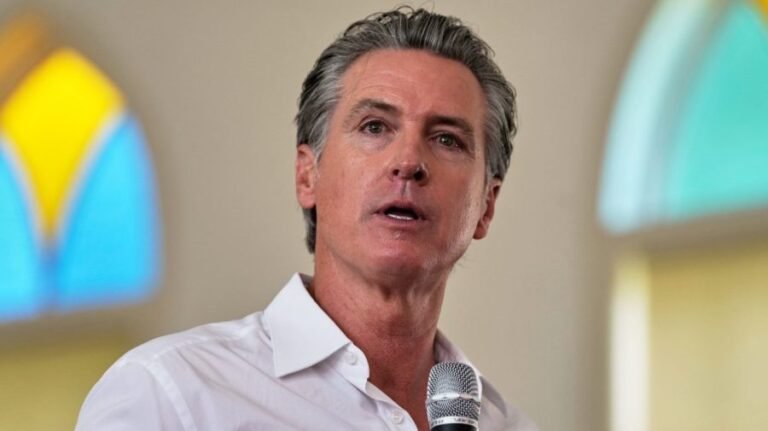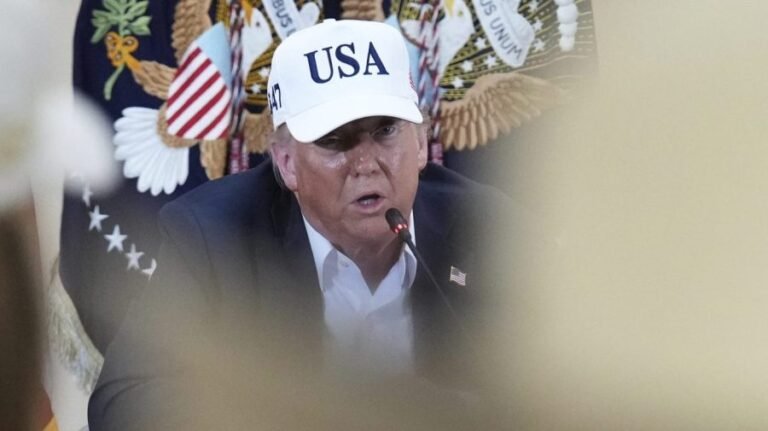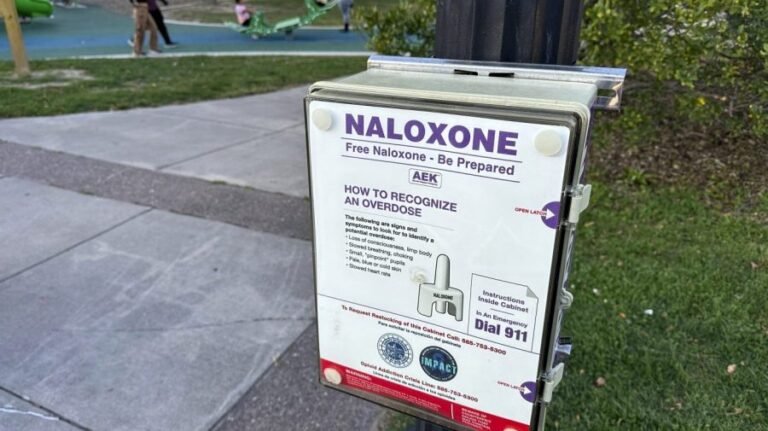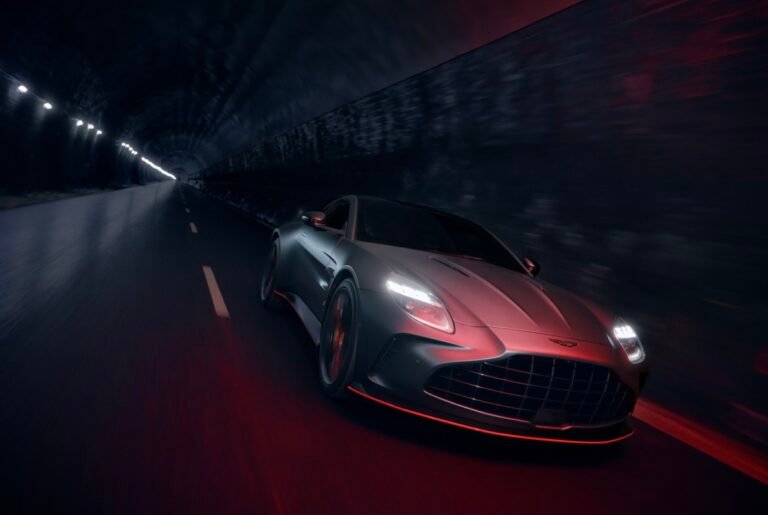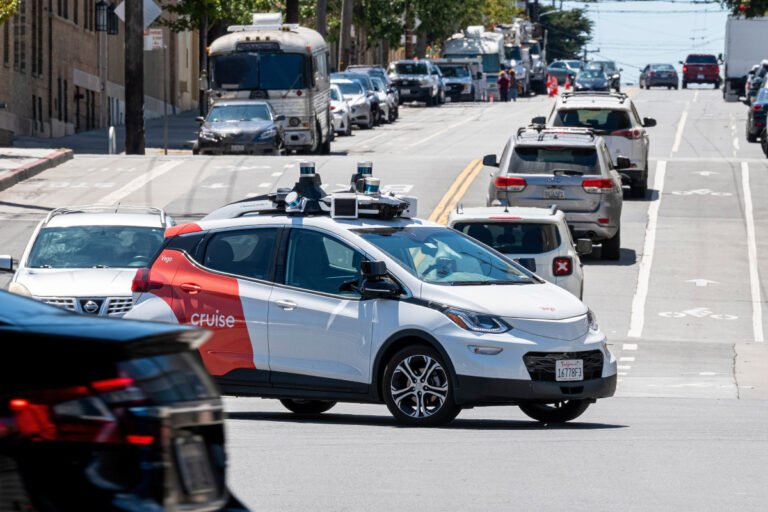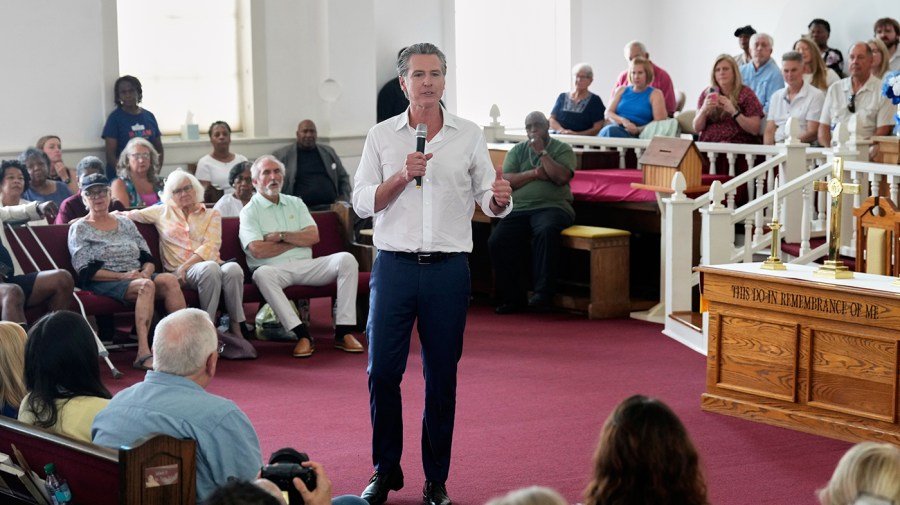
South Carolina is already setting the stage for the shadow 2028 presidential primaries as potential White House hopefuls from both parties travel to the Palmetto State.
California Gov. Gavin Newsom (D) traveled through rural South Carolina during a two-day tour this past week, while Kentucky Gov. Andy Beshear (D) and Rep. Ro Khanna (D-Calif.) are expected to head to the state later this month.
Over on the Republican side, Virginia Gov. Glenn Youngkin (R) is speaking at a South Carolina GOP fundraiser next month, while Sen. Rand Paul (R-Ky.) recently made trips to South Carolina and Iowa, according to Axios reports.
The moves have raised speculation over whether some candidates are laying early groundwork for possible White House bids in 2028 and what role South Carolina will play in the next presidential cycle’s calendar.
“I don’t read it any other way,” said South Carolina Democratic National Committee (DNC) member Carol Fowler, regarding the high-profile Democrats visiting the state, which was the first official Democratic primary location in 2024.
“I believe that they’re at least contemplating it,” she added, referring to potential White House bids.
Only months into President Trump’s second term, the chatter in political circles is moving fast to 2028. Govs. Wes Moore (D) of Maryland and Tim Walz (D) of Minnesota traveled south in May to participate in the South Carolina state party’s Blue Palmetto Dinner and Democratic State Convention, respectively. The two men also appeared at Rep. James Clyburn’s (D-S.C.) annual fish fry.
Moore has said he’s not running for president in 2028. A source close to his campaign noted that the Maryland governor had traveled to the state earlier this year after canceling a trip to South Carolina that had been planned during the 2024 election. The source also noted that the governor visited two companies while he was there regarding potential expansion opportunities in Maryland.
Earlier this past week, Newsom traveled to several rural counties in the Palmetto State in an event the state party billed as a way “to connect directly with communities that have too often been overlooked by Republicans in power.”
Beshear, meanwhile, will make multiple stops in the state next week, including participating in a dinner hosted by Georgetown County Democrats and speaking at the South Carolina AFL-CIO Convention.
Next week, Khanna is doing a town hall, which the congressman said in a statement to The Hill is part of his “Benefits Over Billionaires tour to help flip the House in 2026 and hear how Trump and [Vice President] Vance’s bill will hurt families already struggling to get by.”
Youngkin will speak in August at the state GOP’s Silver Elephant Gala.
To be sure, South Carolina is not the only early primary state that has received attention from potential 2028 hopefuls.
Former Transportation Secretary Pete Buttigieg visited Iowa earlier this year; Sen. Ruben Gallego (D-Ariz.) is heading there next month. Former U.S. Ambassador to Japan Rahm Emanuel is slated to head there in September, according to Axios.
Illinois Gov. JB Pritzker (D) spoke in April at the New Hampshire Democratic Party McIntyre-Shaheen 100 Club Dinner. Sen. Amy Klobuchar (D-Minn.), who ran for president in 2020 and lost in the primary, campaigned for Rep. Chris Pappas (D-N.H.) this past week. Sen. Cory Booker (D-N.J.) and Pennsylvania Gov. Josh Shapiro (D) traveled to the state last year.
Out-of-state travel is not unusual, particularly for sitting lawmakers and governors who may be asked to speak at events or fundraisers.
Some Democrats don’t necessarily think all of these notable names are vying for the White House. The trips could be a way to shore up better support for Democrats in the region.
“They realize that we have to win the South,” South Carolina Democratic Party Chair Christale Spain said.
To win in other places, “we’ve got to have an investment of time and resources to get these voters engaged and off the bench so that we can elect more members of Congress, so that we can elect more members of the U.S. Senate,” she explained.
Whatever the reason, the early primary state visits have brought 2028 front and center by mid-2025. Some Democrats have acknowledged the visits to the state feel a little earlier than usual.
Still, experts in the Palmetto State say there’s good reason for potential hopefuls to be crisscrossing the state.
“Running in South Carolina, it helps candidates prove their mettle,” state GOP chair Drew McKissick explained. “I mean, it’s a big enough state to test grassroots support and fuel organization skills and so forth, but it’s also small enough to get around and over the course of the day and test your retail skills.”
The recent visits to South Carolina have also raised questions about whether it will remain first in Democrats’ lineup of early contests for the presidential nomination. The DNC has said it wants to ensure fairness in the process of selecting its early calendar slate.
“The DNC is committed to running a fair, transparent, and rigorous process for the 2028 primary calendar. All states will have an opportunity to participate,” DNC Deputy Communications Director Abhi Rahman said in a statement.
But some state party chairs are beginning to weigh in.
Iowa Democratic Party Chair Rita Hart made clear in a statement that she wanted Democrats to reconsider the calendar, as the Hawkeye State has historically enjoyed its status as the first caucus.
“I do expect to have tough and direct conversations with the DNC regarding our Iowa caucuses and the serious concerns surrounding the Biden 2024 calendar,” Hart said. “National Democrats let Trump get a head start in the 2024 campaign by excluding Iowa. We simply can’t afford to be ignored again.”
Several Democratic chairs of early presidential primary states, however, suggested that battle could be hard-fought.
“We have a history of picking the nominee, number one … Iowa can’t say that. New Hampshire can’t say that, and our voters take this very seriously,” said Spain, the South Carolina Democratic Party chair.
“South Carolina’s going to be fighting for South Carolina, and I’m assuming that she’s doing the same thing for her state.”
Spain and other DNC members from South Carolina have had discussions with Democrats running to serve on the DNC’s Rules and Bylaws Committee — or other standing committees — regarding their position on South Carolina and the 2028 primary calendar.
The DNC is holding elections for at-large member positions and several standing committees in August, though the Rules and Bylaws Committee is seen as being particularly influential in the nominating calendar process.
New Hampshire Democratic Party Chair Ray Buckley in a statement said the Granite State’s importance “cannot be understated” and noted that the four-state calendar of Iowa, New Hampshire, Nevada and South Carolina “was a system that not only worked, the four early states worked well together.”
“Granite Staters value retail politics and grassroots organizing like no other state. That is why New Hampshire continues to have a pivotal role in the presidential nominating process,” he said. “The importance of New Hampshire as a purple battleground state cannot be understated in the general election for the White House and building a US Senate and House majority.”
Nevada Democrats, however, maintain that their demographics are indicative of the country at-large.
“We’re a microcosm of the rest of the U.S., showing this country’s diversity of cultures and communities,” Sen. Catherine Cortez Masto (D-Nev.) told The Hill in a statement. “If you’re a presidential candidate and can win our votes, your message will resonate with voters across the United States.”
While the discussion over the calendar is just beginning, Democrats hope the different states can unite as the party prepares to take back the White House.
“I really think Democrats make a mistake if they think this is a fight between four early states,” said New Hampshire-based Democratic strategist Jim Demers, who worked on former President Biden’s write-in campaign last year.
“I think we really need to look at what’s the best lineup of states so that we come out of the primary process in a very strong position.”
